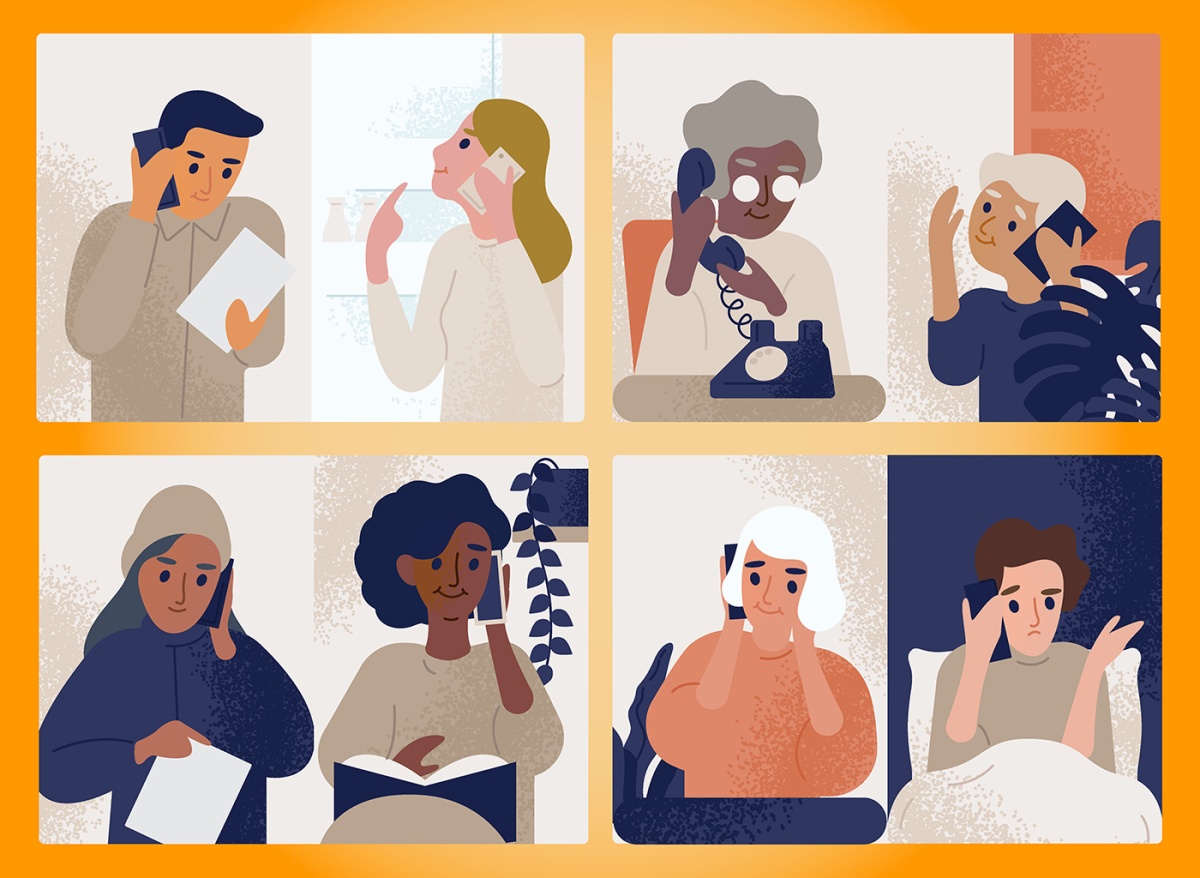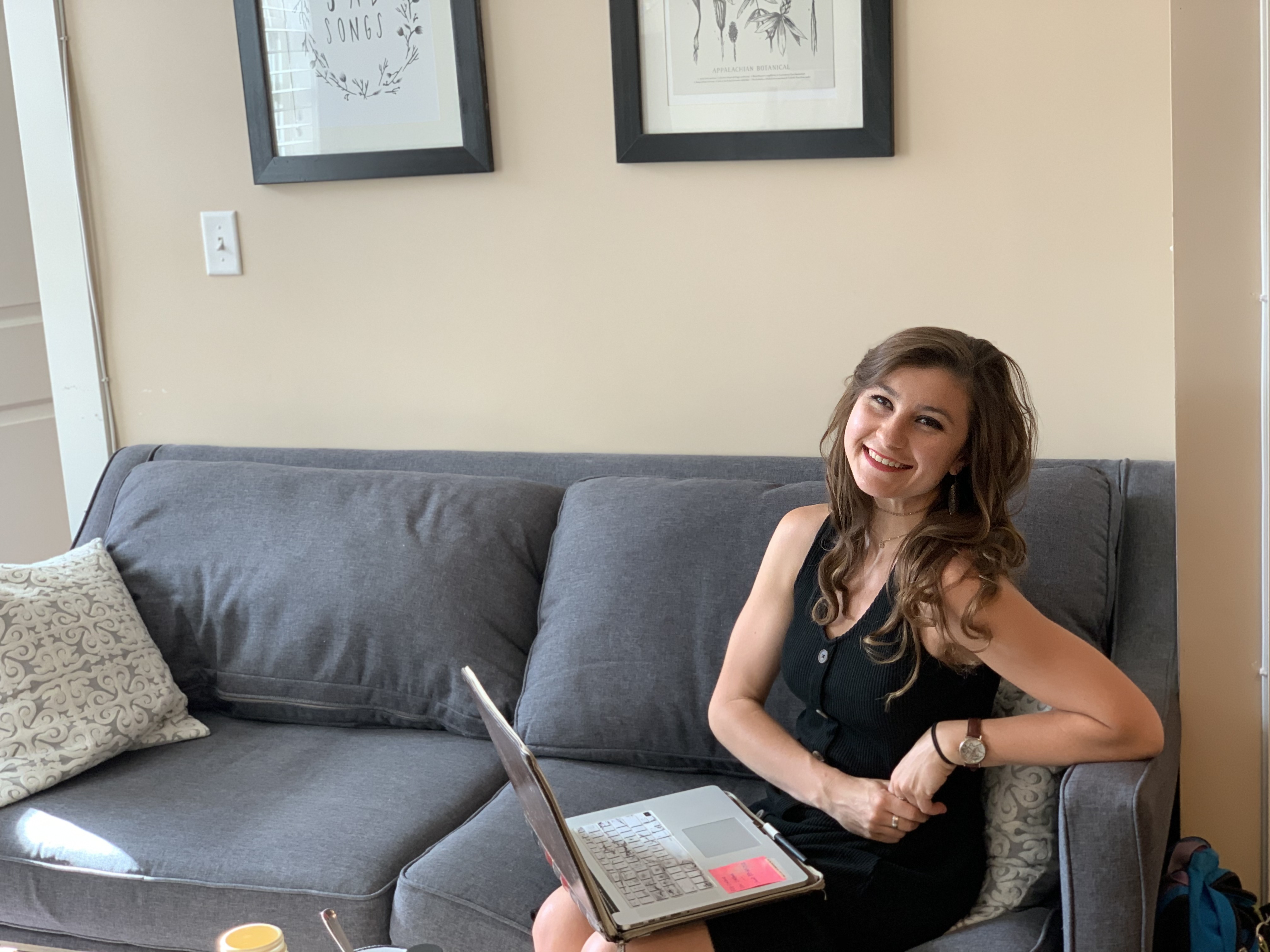Now Answering Calls: A COVID Case Investigator’s Story
Posted on Jun 15, 2020

When a Massachusetts family was struck by COVID-19, their immediate concern wasn’t simply recovering—it was not getting evicted.
Both parents had tested positive for the disease. They had two young children, and had been laid off from their hourly jobs in the service industry. As they worried about how to make ends meet in an economy already devastated by the pandemic, the prospect of losing their apartment loomed.
When they called the Massachusetts Community Tracing Collaborative, Alex Cross and her team of case investigators and contact tracers were ready to respond.
To help the family, Cross and her team pulled in care resource coordinators, who contacted the local board of health. The triage worked. When her team checked in with the family later—Cross said her team conducts daily follow ups with people who are positive cases, and her final call with this family was a week after the first—their landlord was allowing them to stay and their quarantine window had passed.
As a case investigator supervisor, Cross sees cases like this all the time. She knows firsthand that contact tracing is about much more than picking up the phone and tracking cases; it’s about connecting people with social support and accompanying them, often in their darkest moments.
Partners In Health and the Commonwealth of Massachusetts launched the CTC in early April in collaboration with other state partners, as part of the statewide COVID-19 response. The CTC is a key part of comprehensive efforts to control and end transmission of the novel coronavirus in Massachusetts, and the first large-scale coronavirus contact tracing program in the U.S. The Department of Public Health and local boards of health continue to lead contact tracing efforts, with ongoing support from the CTC.
The collaborative has since grown – at the height of the pandemic, the team included more than 1,900 contact tracers, case investigators and care resource coordinators.
The expansion has been massive, and critical.
“Data and experience from countries that have been successful in bending the COVID-19 curve downward have shown us that we have no choice,” says Dr. Jim Yong Kim, PIH co-founder and board member, who initially reached out to Gov. Charlie Baker to offer PIH’s assistance in Massachusetts. “It’s time to go on the offense against the virus.”
‘Frontlines’ of contact tracing
Cross’s team—known as the inbound line—began with around 15 people, but grew within weeks. Now, her team includes 130 contact tracers and fields as many as 500 calls per day.
Unlike the CTC’s outbound lines, where contact tracers call people to share their test results and have case files at the ready, the inbound line fields incoming calls, including everyone from people asking about their COVID-19 status to tenants worried about eviction.
“We see them as the frontlines of the CTC,” Cross says.
She hadn’t expected to be a part of this fight. If you had asked the Tennessee native a year ago—or even a few months ago—about her plans following grad school, leading a team of contact tracers likely wouldn’t have been Cross’s answer. But as COVID-19 took hold, the Tufts University graduate felt a strong desire to help, especially given her public health training.
“I had all this energy and time I wanted to funnel into helping with the COVID-19 effort,” Cross says. “I saw this job posted and thought, ‘This is perfect.’”

On the inbound line for COVID-19
Her day starts at 7 a.m., when she catches up on news and sets an agenda for the day. The inbound line opens at 8 a.m. As soon as her contact tracers mark themselves “available,” calls start pouring in.
“My team are the people out there every day, talking to hundreds of Massachusetts residents and being their guide through this really scary, uncertain time,” Cross says.
People typically get the CTC’s inbound line phone number at COVID-19 testing sites. But the number also is shared by local health boards and on voicemails from CTC contact tracers.
For most incoming calls, Cross and her team follow a standard approach. First, they conduct a symptoms interview, asking callers if they have experienced shortness of breath or other COVID-related symptoms. Then, if callers know they have symptoms, tested positive, or were exposed, contact tracers ask callers whom they have been in contact with, and then get information for those contacts to set up future interviews, and link the cases for the state’s epidemiological database. (The data is kept confidential and participation is voluntary.)
The last step is often the most complicated. After the symptoms interview and contact questions, the contact tracers make sure callers have the resources they need to safely and effectively quarantine.
If not, they connect the callers with care resource coordinators—CTC staff who can connect them with local support for a variety of needs, including housing, food, and mental health services.
Because COVID-19 is rarely the only concern on callers’ minds.
Empathy required
Her team has helped people with mental health crises, families running low on food, and mothers needing to buy formula. For the most urgent cases, supervisors like Cross and care resource coordinators are pulled in immediately.
“To work on the inbound calling line, it really takes an emotionally intuitive, really empathetic person,” Cross says.
“You have to really be able to read the situation you’re in, because when you pick up the phone, you really just don’t know what you’re getting. When that phone line rings, you just have no idea.”
She recalls speaking with a woman who was living in a tent and had tested positive for COVID-19, but didn’t have a primary care doctor. The woman also was reluctant to go to a shelter, because she was in recovery for addiction and didn’t want to be around people who could be using. With the help of care resource coordinators, Cross and her team found a way to connect the woman with treatment and shelter.
For Cross, cases like this make the work rewarding. But for every success story, there are many more people in need. And that knowledge takes a toll.
“Sometimes when I go to bed, it’s all I dream about,” she says. “You encounter so many people each day. It's hard to just turn it off at night. I think about it all the time.”
{"preview_thumbnail":"/sites/default/files/styles/video_embed_wysiwyg_preview/public/video_thumbnails/BUCnu_l9fj0.jpg?itok=6UY663vC","video_url":"https://www.youtube.com/watch?v=BUCnu_l9fj0&feature=youtu.be","settings":{"responsive":1,"width":"854","height":"480","autoplay":0},"settings_summary":["Embedded Video (Responsive)."]}
A step toward healing
Her contact tracers have to manage not only the needs of callers, but also the fast-moving world of COVID-19—from updated national guidance to protocol changes. Additionally, contact tracers field a steady stream of concerns about the CTC itself, and often give additional information to callers, such as people who are concerned about privacy or think the effort is a scam.
Cross said it’s important for her team to “meet callers where they are” emotionally, and help them feel understood.
Her team reassures callers that their participation is voluntary, their identity is confidential, and that any personal information already on file comes directly from the Massachusetts Department of Public Health. And they emphasize that every symptom tracked and every person contacted is a step away from quarantine and lockdown, and a step toward a vaccine and healing.
For callers who don’t speak English, including undocumented immigrants, the team works with interpreters and staff members fluent in numerous languages. All information is confidential, treated as a private medical record, and not shared with other, non-health agencies, including immigration officials.
Keeping the inbound line running is no small task, but Cross knows each and every call makes a difference.
“It requires a lot of trust in your team and also just having to know that you can’t personally touch each case,” she says. “The system is built in a way that the needs are getting met every day. It’s just been amazing to see what a bunch of people can come together and do.”

